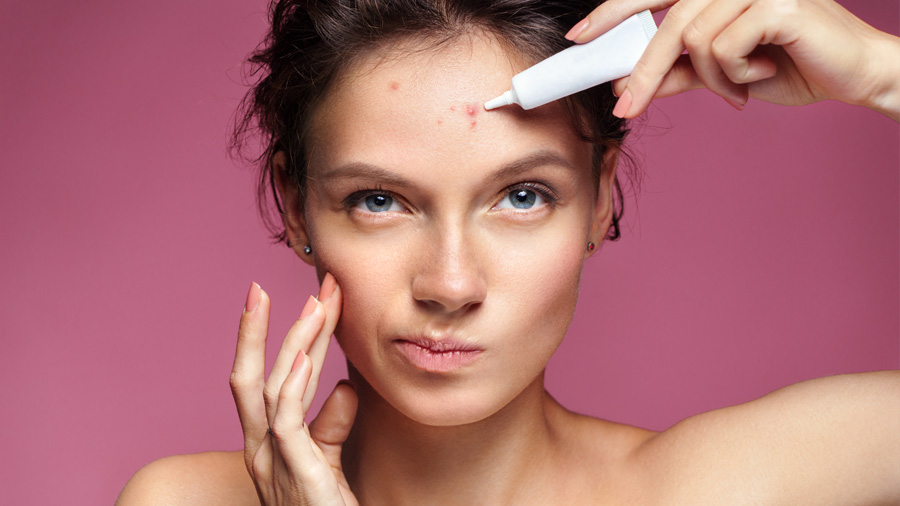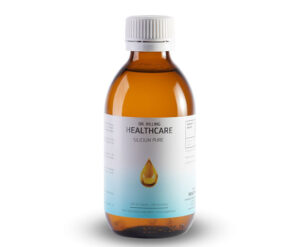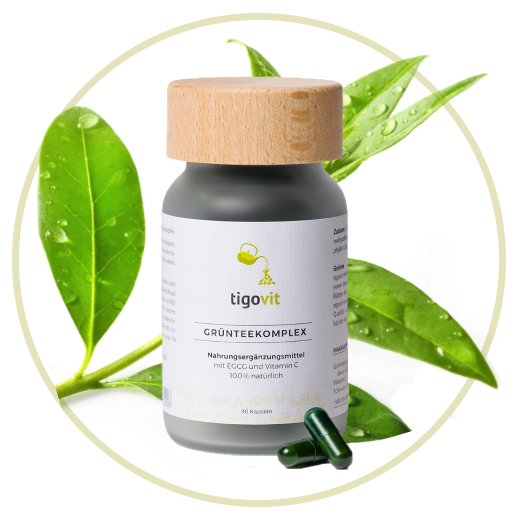
Autorin: Johanna Heuer
Was will meine Haut mir sagen?
Du hast bereits deine perfekte Pflegeroutine gefunden, aber plötzlich scheint sie nicht mehr zu wirken? Oder deine Mischhaut ist in letzter Zeit nur noch trocken und schuppig? Das Problem könnte von innen kommen. Mangelerscheinungen oder ungesunde Ernährungsgewohnheiten zeichnen sich früher oder später im Gesicht ab. Das mag im ersten Moment ärgerlich klingen – aber vielmehr kannst du dieses Phänomen als Chance verstehen, besser auf deinen Körper hören zu lernen! Er zeigt dir mit Hautproblemen deutlich, was er gerade am meisten braucht.
In diesem Artikel findest du eine Übersicht über Auffälligkeiten in deinem Erscheinungsbild, die möglicherweise mit Mangelerscheinungen zusammenhängen können. So erhältst du einen Wegweiser für deine ganzheitliche Hautgesundheit. Dir wird beim Lesen auffallen, dass einige Nährstoffmängel sich recht ähnlich äußern. Deshalb solltest du bei Verdacht auf einen Mangel zunächst eine Ärztin oder einen Arzt deines Vertrauens aufsuchen, um eine zuverlässige Diagnose zu erhalten.
Diese Nährstoffmängel sorgen für trockene Haut
Wenn deine Haut trocken und stumpf wirkt und du aggressive Hautpflegeprodukte bereits als Verursacher ausgeschlossen hast, kann sie auch das Symptom eines Mangels darstellen. Die Haut kann zum Beispiel trocken werden, wenn es deinem Körper an Silizium (Kieselsäure), Vitamin A, Magnesium oder Calcium fehlt. Bei einem Vitamin-A-Mangel wird die Haut sogar schuppig. Hinzu kommen in diesem Fall außerdem trockene und gerötete Augen. Vitamin A steckt vor allem in gelben und grünen Gemüsesorten (z. B. Karotten, Grünkohl, Aprikosen), Milchprodukten oder auch in Eiern. Ebenso findet sich Vitamin A in grünem Tee. Bei einem Magnesiummangel wiederum tritt trockene Haut häufig zusammen mit Augenzucken auf. Hast du nicht genügend Silizium im Körper, wird deine Haut trocken und bildet vermehrt Falten.

Silizium findet sich hauptsächlich in Reis, Hafer, Weizen und Hirse. Siliziumreiche Gemüsesorten sind zudem Kartoffeln, Paprika und Spinat. Spitzenreiter in der Kategorie Magnesium sind Weizenkleie, Kürbiskerne und Sonnenblumenkerne. Aber auch Bananen, Erbsen, Brokkoli oder Himbeeren enthalten viel Magnesium. Brokkoli ist außerdem eine gute Calciumquelle. Weitere calciumreiche Lebensmittel sind Blattspinat und Milchprodukte. Wenn du das Gefühl hast, genügend Calcium aufzunehmen, aber dennoch einen Mangel vermutest, kann auch ein Vitamin-D-Mangel vorliegen. Damit der Körper Calcium überhaupt aufnehmen kann, benötigt er nämlich ausreichend Vitamin D.
Mögliche Ursachen für blasse Haut
Man sieht dir den Sommer gar nicht an? Auch blasse Haut kann ein Anzeichen für einen Nährstoffmangel darstellen. Wenn es dir zum Beispiel an Eisen fehlt, wird die Haut fahl, du bekommst Augenringe, deine Mundwinkel reißen ein und dir fallen vermehrt Haare aus. Auch eine brennende Zunge kann auftreten. Besonders viel Eisen ist in rotem Fleisch und Innereien enthalten. Hülsenfrüchte oder Tofu zählen hingegen zu den besten pflanzlichen Eisenlieferanten. Am besten nimmt der Körper Eisen in Verbindung mit Vitamin C auf. Zu einem leckeren Linsen-Dal schmeckt zum Beispiel ein erfrischendes Glas Orangensaft ganz hervorragend.
Folsäuremangel (Vitamin B9) kann ebenfalls für blasse Haut sorgen. Ähnlich wie beim Eisenmangel gesellt sich auch hier eine brennende Zunge zur auffallenden Blässe dazu. Für eine genaue Abklärung deiner Symptome braucht es also in jedem Fall ein Blutbild. Grünes Blattgemüse und Getreide stellen wichtige Folsäure-Lieferanten dar. Aber auch Kichererbsen liefern den Nährstoff.
Als weiterer Kandidat kommt bei Blässe der Vitamin-B12-Mangel infrage. Neben eingerissenen Mundwinkeln fällt deine Haut hier zudem mit schlecht heilenden Pickeln und Verletzungen auf. Vitamin B12 findet sich vor allem in tierischen Produkten. Bei einer veganen Lebensweise kann es deshalb häufiger vorkommen, dass der Bedarf nicht gedeckt wird. Abhilfe schafft hier ein großes Angebot an entsprechenden Nahrungsergänzungsmitteln.
Eingerissene Mundwinkel und / oder spröde Lippen als Mangelerscheinung
Deine Mundwinkel sind ständig wund? Das ist nicht nur fürchterlich unangenehm, sondern häufig auch ein Anzeichen für einen Nährstoffmangel. Wenn es deinem Körper zum Beispiel an Vitamin B6, B12 oder Eisen fehlt, wird die Haut an den Mundwinkeln schnell spröde und reißt ein. Kommen rissige Lippen hinzu, hast du es wahrscheinlich mit einem Vitamin-B6-Mangel zu tun.

Fleisch und Fisch sind wichtige Quellen für Vitamin B6. Aber auch Kohl, Linsen, Sojabohnen, Kartoffeln und Bananen enthalten den Nährstoff in nicht unwesentlichen Mengen. Um das lichtempfindliche Vitamin möglichst zu erhalten, solltest du auf eine dunkle Lagerung deines Gemüses achten. Um deiner Haut zusätzlich bei der Heilung zu helfen, kannst du zu einem bewährten Hausmittel greifen. Vermenge etwas Honig und Olivenöl miteinander und reibe die wunden Stellen damit ein. Diese selbstgemachte Salbe ist nicht nur wohltuend, sondern schmeckt dazu auch noch lecker. Bei stärkeren Rissen, die sich vielleicht sogar entzündet haben, können spezielle Cremes aus der Apotheke Abhilfe schaffen.
Augenprobleme und Probleme mit der Haut rund ums Auge
Dass Vitamin-A-Mangel für trockene, gerötete Augen sorgt, Magnesiummangel deine Lider zucken lässt und ein Eisenmangel oft mit dunklen Augenringen einhergeht, hast du weiter oben schon erfahren. Andere Auslöser können aber ebenso für Auffälligkeiten am Auge verantwortlich sein. So entstehen Augenringe auch nicht selten durch zu wenig Schlaf oder eine unzureichende Flüssigkeitszufuhr. Statt den ganzen Tag nur Wasser zu trinken, kannst du mit verschiedenen Tees für Abwechslung sorgen. Diese lassen sich im Sommer auch gut kalt genießen. Wie wäre es um Beispiel mit einer Tasse Grüntee für den kleinen Koffeinkick nach dem Mittagessen?
Für geschwollene Augenlider kann außerdem Schlafmangel sorgen. Andere Ursachen können zudem eine übermäßige Aufnahme von Salz oder Alkohol sein. Zu viel Alkohol kann weiterhin die Haut im ganzen Gesicht aufquellen lassen. Wer regelmäßig viel Alkohol trinkt, riskiert zudem die Entstehung von verschiedenen Nährstoffmängeln. Deine Haut wird es dir also danken, wenn du deine Partylaune etwas zügelst. Zum Glück gibt es die meisten leckeren Drinks heutzutage auch in einer alkoholfreien Variante.
Falten als Symptom?

Ein Mangel an weiteren Vitaminen im B-Komplex können ebenso eine Faltenbildung zur Folge haben. Besonders die Vitamine B3 (Niacin) und B9 (Folsäure, siehe oben) wären hier zu nennen. Wie die meisten B-Vitamine ist auch Vitamin B3 vor allem in Fleisch und Fisch enthalten. Als pflanzliche Lieferanten eignen sich aber Pfirsiche, Pfifferlinge, Steinpilze, Erdnüsse und Pinienkerne. Auch Erbsen und Sojabohnen können dich mit Vitamin B3 versorgen.
Mit der richtigen Hautpflege wirkst du Falten natürlich zusätzlich entgegen. Nutze am besten eine Tagescreme, die deine Haut vor äußeren Einflüssen schützt und sie bei der Entgiftung unterstützt. Eine passende Nachtcreme, die die Haut mit Feuchtigkeit versorgt und die Regeneration anregt, schafft zusätzlich Abhilfe.
Fettige Haut und Pickel durch falsche Ernährung
Zu Akne neigende Haut hängt zumeist mit genetischen Ursachen zusammen. Allerdings können diverse Faktoren die Talgproduktion begünstigen. Dazu zählt auch die Ernährung. Vor allem Nahrungsmittel mit einem hohen glykämischen Index können zu fettiger Haut führen. Der glykämische Index gibt an, wie schnell ein Lebensmittel den Blutzuckerspiegel ansteigen lässt. So regen etwa Chips, Pommes oder Backwaren aus Weißmehl die Insulinproduktion stärker an als beispielsweise Vollkornbrot, Gemüse und brauner Reis. Schnell aufgenommene Zucker aus ersteren Produkten können zu einer übermäßigen Talgproduktion führen und somit die Entstehung von Hautunreinheiten und Pickeln fördern. Wenn du also unter fettiger Haut leidest, könnte eine Ernährungsumstellung Abhilfe schaffen. Zumal nicht nur deine Haut davon profitieren wird, wenn du vermehrt zu gesünderen Lebensmitteln greifst.
Um deine Haut von außen bei der Bekämpfung von Unreinheiten zu unterstützen, bieten sich vor allem Hautpflegeprodukte mit grünem Tee an. Die Inhaltsstoffe schützen dein Gesicht vor Umwelteinflüssen und helfen den Poren, sich selbst zu reinigen. Der Einfluss Radikaler wird vermindert.
Höre auf deinen Körper
Wie du siehst, können Hautproblemen viele verschiedene Ursachen zugrunde liegen. Die besten Pflegeprodukte helfen kaum, wenn der Auslöser von innen kommt. Deshalb ist es wichtig, die Signale deines Körpers jederzeit ernst zu nehmen und auch vermeintlich lapidare Probleme nicht gleich abzutun. Natürlich ist dies keine Aufforderung, hypochondrisch zu werden. Aber wenn deine Haut sich plötzlich anders verhält als gewohnt und du dich ohnehin schon mal besser gefühlt hattest, solltest du durchaus nachforschen.
Frage dich zum Beispiel, ob du in letzter Zeit besonders viel Stress hattest oder ob du wirklich genug schlafen konntest. Trinkst du ausreichend und ernährst dich ausgewogen? Auch kleine Veränderungen in deinem Lebensstil können sich bemerkbar machen – sowohl positiv als auch negativ.



